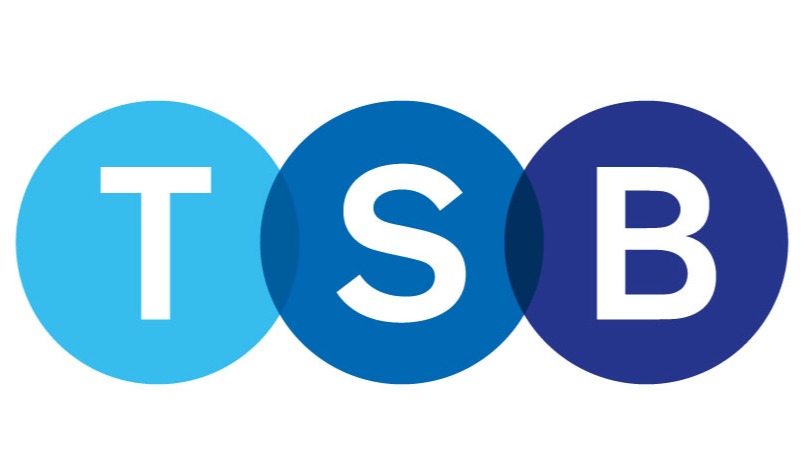Santander has agreed to acquire TSB Banking Group from Banco de Sabadell for £2.65 billion in an all-cash transaction, strengthening the Spanish bank's position in the UK retail banking market.
The deal, announced on Tuesday, will make Santander the third largest bank in the UK by personal current account balances, serving nearly 28 million customers when combined with its existing operations. TSB brings approximately 5 million customers, £34 billion in mortgages and £35 billion in deposits to the acquisition.
The transaction represents a significant consolidation move in British banking, where TSB operates 175 branches nationwide with around 5,000 staff. Santander UK currently serves 14 million customers through 350 branches with 18,000 employees.
Ana Botín, Banco Santander's executive chair, said: "The acquisition of TSB represents a continuing strategic commitment to our customers in the UK, offering a compelling opportunity that is financially attractive to our shareholders and aligned with Santander's long-term objectives."
Santander expects the acquisition to generate a return on invested capital of over 20 per cent and boost its UK unit's return on tangible equity from 11 per cent in 2024 to 16 per cent by 2028. The bank projects cost synergies of at least £400 million, equivalent to 13 per cent of the combined business's cost base.
The transaction will be earnings accretive from the first year, contributing approximately 4 per cent to earnings per share by 2028 while consuming 50 basis points of CET1 capital at closing.
Marc Armengol, chief executive officer of TSB, said: "TSB is a truly special bank, run by a first-class team that deliver trusted service and support for customers, day in and day out. Today's announcement represents the next exciting chapter for this successful business, as part of Santander, a highly regarded banking group."
Sabadell will use proceeds from the sale to fund shareholder returns totalling 3.8 billion euros, including a 0.50 euro per share extraordinary dividend worth 2.5 billion euros.
The acquisition marks TSB's third major ownership change in just over a decade. The bank was spun off from Lloyds in 2013, floated on the London Stock Exchange in 2014, and acquired by Sabadell in 2015 for £1.7 billion.
The transaction remains subject to regulatory approvals and Sabadell shareholder approval, with completion expected in the first quarter of 2026.
The deal comes as Sabadell faces a hostile takeover approach worth more than €14 billion from Spanish rival BBVA. Despite the Spanish government imposing restrictions that would prevent the banks from fully merging for at least three years, BBVA confirmed on Monday it would proceed with its bid, having first launched the unsolicited approach in May 2024.
Sabadell's decision to sell TSB is viewed as a defensive strategy to complicate BBVA's takeover attempt while returning substantial value to shareholders. Under Spanish law, if BBVA succeeds in acquiring Sabadell, the latter would need shareholder approval before selling TSB.
Latest News
-
Mizuho to replace 5,000 administrative roles with AI
-
Allica achieves unicorn status through latest funding round
-
AI disruption risk varies between platform and service-based firms, says new report
-
ClearBank moves into the heart of London’s financial centre
-
Citi forms AI infrastructure banking team and invests in Sakana AI
-
HSBC chief Elhedery says overhaul nearly complete despite profit fall
Creating value together: Strategic partnerships in the age of GCCs
As Global Capability Centres reshape the financial services landscape, one question stands out: how do leading banks balance in-house innovation with strategic partnerships to drive real transformation?
Data trust in the AI era: Building customer confidence through responsible banking
In the second episode of FStech’s three-part video podcast series sponsored by HCLTech, Sudip Lahiri, Executive Vice President & Head of Financial Services for Europe & UKI at HCLTech examines the critical relationship between data trust, transparency, and responsible AI implementation in financial services.
Banking's GenAI evolution: Beyond the hype, building the future
In the first episode of a three-part video podcast series sponsored by HCLTech, Sudip Lahiri, Executive Vice President & Head of Financial Services for Europe & UKI at HCLTech explores how financial institutions can navigate the transformative potential of Generative AI while building lasting foundations for innovation.
Beyond compliance: Building unshakeable operational resilience in financial services
In today's rapidly evolving financial landscape, operational resilience has become a critical focus for institutions worldwide. As regulatory requirements grow more complex and cyber threats, particularly ransomware, become increasingly sophisticated, financial services providers must adapt and strengthen their defences. The intersection of compliance, technology, and security presents both challenges and opportunities.
© 2019 Perspective Publishing Privacy & Cookies
















Recent Stories